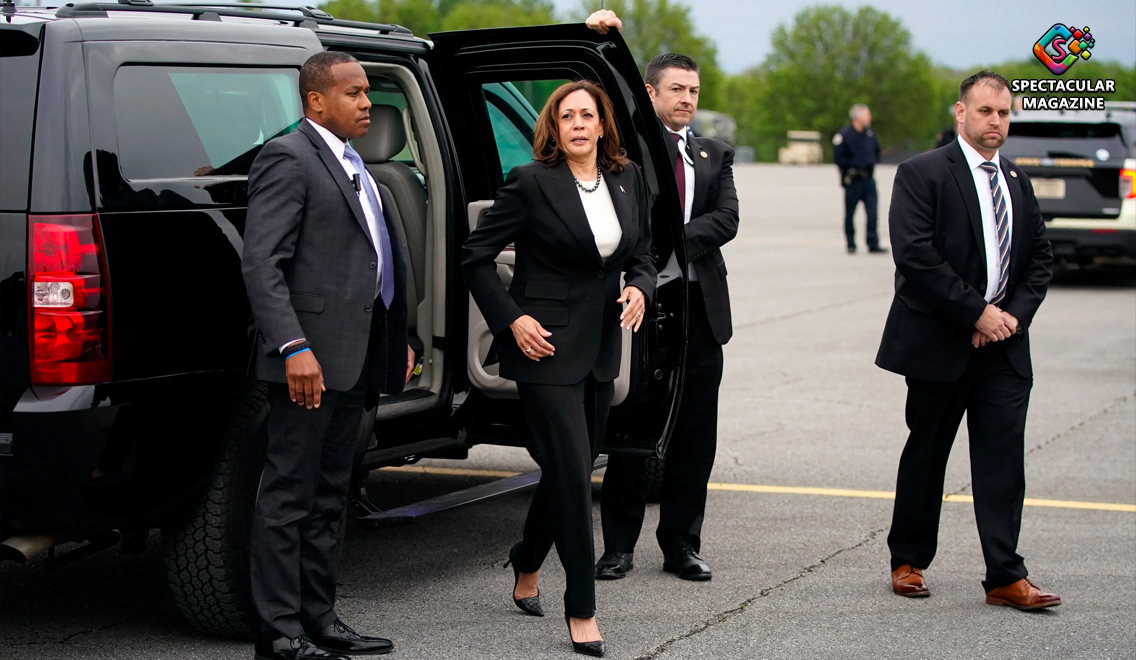A Week That Shook the U.S.
The final week of August 2025 may be remembered as a turning point in American politics. Within forty-eight hours, two seismic events reshaped the national conversation: a federal appeals court struck down the bulk of President Donald Trump’s sweeping global tariffs as unconstitutional, and the Trump administration revoked Secret Service protection for former Vice President Kamala Harris.
Each development alone would have been headline news. Together, they represent a dangerous convergence of law, politics, and security, raising profound questions about executive power, institutional integrity, and the safety of political leaders.
The Tariff Ruling: A Blow to Trump’s Signature Weapon
The Legal Decision
On August 29, 2025, the U.S. Court of Appeals for the Federal Circuit delivered a 7–4 decision declaring that Trump’s global tariffs, imposed under the International Emergency Economic Powers Act (IEEPA), were unlawful.
The court’s reasoning was rooted in constitutional principle. While the IEEPA grants the president authority to block financial transactions and freeze assets during a national emergency, it does not transfer Congress’s exclusive power to impose taxes and tariffs. The court reaffirmed a core doctrine: under the U.S. Constitution, the power to levy duties lies squarely with Congress.
This case built upon V.O.S. Selections, Inc. v. United States, a May 2025 ruling from the Court of International Trade, which similarly argued that the IEEPA had been stretched beyond its intended scope. Together, the cases represent the most serious judicial challenge yet to Trump’s expansive view of presidential economic authority.
Trump’s Response
Trump reacted with defiance. From his golf club in Virginia, where he was photographed with his grandchildren the next morning, he announced his plan to appeal to the Supreme Court.
“This decision is a disgrace,” Trump said at a press conference. “The courts are trying to tie the hands of a president who is fighting for American jobs, American factories, and American families. We will take this all the way to the Supreme Court, and we will win.”
Why the Tariffs Matter
Trump’s tariffs, introduced in March 2025, were a centerpiece of his economic nationalism. Dubbed the “Liberation Day Tariffs”, they slapped levies of up to 35 percent on imports from over fifty countries, covering everything from steel and electronics to consumer goods.
Trump argued the tariffs were essential to:
-
Rebuilding U.S. manufacturing
-
Retaliating against China’s trade practices
-
Pressuring allies to contribute more to NATO defense spending
But the tariffs also sparked inflation, rattled global markets, and provoked retaliatory measures from trading partners. Critics accused Trump of weaponizing emergency powers for political purposes, bypassing Congress in a way that undermined democratic oversight.
Kamala Harris and the Secret Service Controversy
The Revocation
As Washington was still absorbing the court ruling, another shock followed. On August 29, the administration announced it was revoking Secret Service protection for former Vice President Kamala Harris.
Normally, former presidents and vice presidents receive Secret Service protection for a period of years after leaving office, with extensions possible at the discretion of the current administration. Harris, who left office in January 2025, had been granted an extension by President Biden due to her high profile and ongoing public engagements.
Trump’s decision abruptly canceled that extension, effective immediately.
Official Justification
A senior White House official told reporters:
“Protective resources are finite. The Secret Service should not be tasked with providing indefinite coverage for individuals no longer in government. Former Vice President Harris is free to hire private security, as many high-profile figures do.”
Backlash
The backlash was immediate and fierce.
-
California Governor Gavin Newsom called the decision “reckless and dangerous,” warning that Harris would be “a prime target for extremists” during her planned book tour.
-
House Minority Leader Hakeem Jeffries accused Trump of using the Secret Service as a political weapon: “This isn’t about resources– it’s about intimidation and retribution.”
-
Security experts noted that the revocation was unprecedented in modern U.S. history. Even figures far less prominent than Harris have retained temporary protection after leaving office, particularly when facing public exposure.
Harris herself remained restrained, telling a San Francisco crowd: “I will not be deterred. I will continue to speak, to write, and to fight for the values we share.”
Intersections of Law, Power, and Security
Though the tariff ruling and Harris’s protection revocation seem unrelated, together they reveal the volatility of America’s political climate.
Erosion of Norms
Both events highlight the erosion of norms that once provided stability. Presidents historically consulted Congress on major trade measures. Former vice presidents traditionally retained protection during periods of high public visibility. Trump has challenged both practices simultaneously.
The Supreme Court Wild Card
The tariff battle now heads to the Supreme Court, where Trump hopes a conservative majority will restore his authority. But legal scholars note that even a right-leaning court may hesitate to grant sweeping new powers that upset the constitutional balance.
Security as Politics
The Secret Service revocation underscores how security decisions, once bureaucratic and apolitical, have become politicized. By stripping Harris of protection, the administration signals that even personal safety can be entangled in partisan calculations.
Historical Context
-
Tariffs and Presidential Power: The last comparable legal rebuke came in the 1930s, when the Supreme Court struck down parts of Franklin Roosevelt’s New Deal programs for exceeding executive authority. The Trump tariff case could set a new precedent defining the limits of presidential economic emergency powers.
-
Secret Service Precedent: Since the assassination of President Kennedy in 1963, Secret Service protection has been extended for decades to former leaders. While Congress reduced lifetime coverage in the 1990s (later restored for presidents by President Obama), no vice president of Harris’s stature has had protection revoked so swiftly.
The Bigger Picture: U.S. Stability at Stake
Both stories converge on a deeper theme: institutional fragility. The courts are restraining presidential overreach on trade, while the executive branch is stripping security from political opponents. To allies abroad, it signals instability in America’s governance.
-
Markets: Investors worry about tariff uncertainty heading into the Supreme Court case.
-
Allies: Foreign leaders see Washington divided, complicating cooperation on security and trade.
-
Domestic Politics: The decisions fuel polarization ahead of the 2026 midterms, where both parties will frame themselves as defenders of constitutional integrity.
What Comes Next
-
Supreme Court Showdown: Trump is expected to formally file his appeal within two weeks. Arguments could be heard as early as December 2025.
-
Harris’s Security: Pressure is mounting on Congress to intervene. Democrats may introduce legislation mandating extended protection for former vice presidents.
-
Public Opinion: Polls will likely reflect whether Americans see these moves as bold leadership or authoritarian overreach. Early indications suggest voters are uneasy with the politicization of both tariffs and security.
Conclusion
The United States is entering uncharted territory. With Trump fighting to restore tariff powers and Harris navigating public life without federal protection, two fundamental questions loom:
-
How much authority should a president wield unilaterally over the economy?
-
Should the safety of former leaders be subject to partisan discretion?
The answers will shape not only the future of U.S. politics but also America’s credibility as a constitutional democracy. For now, the nation stands at a precarious crossroads caught between law, power, and the very real dangers of political escalation.

